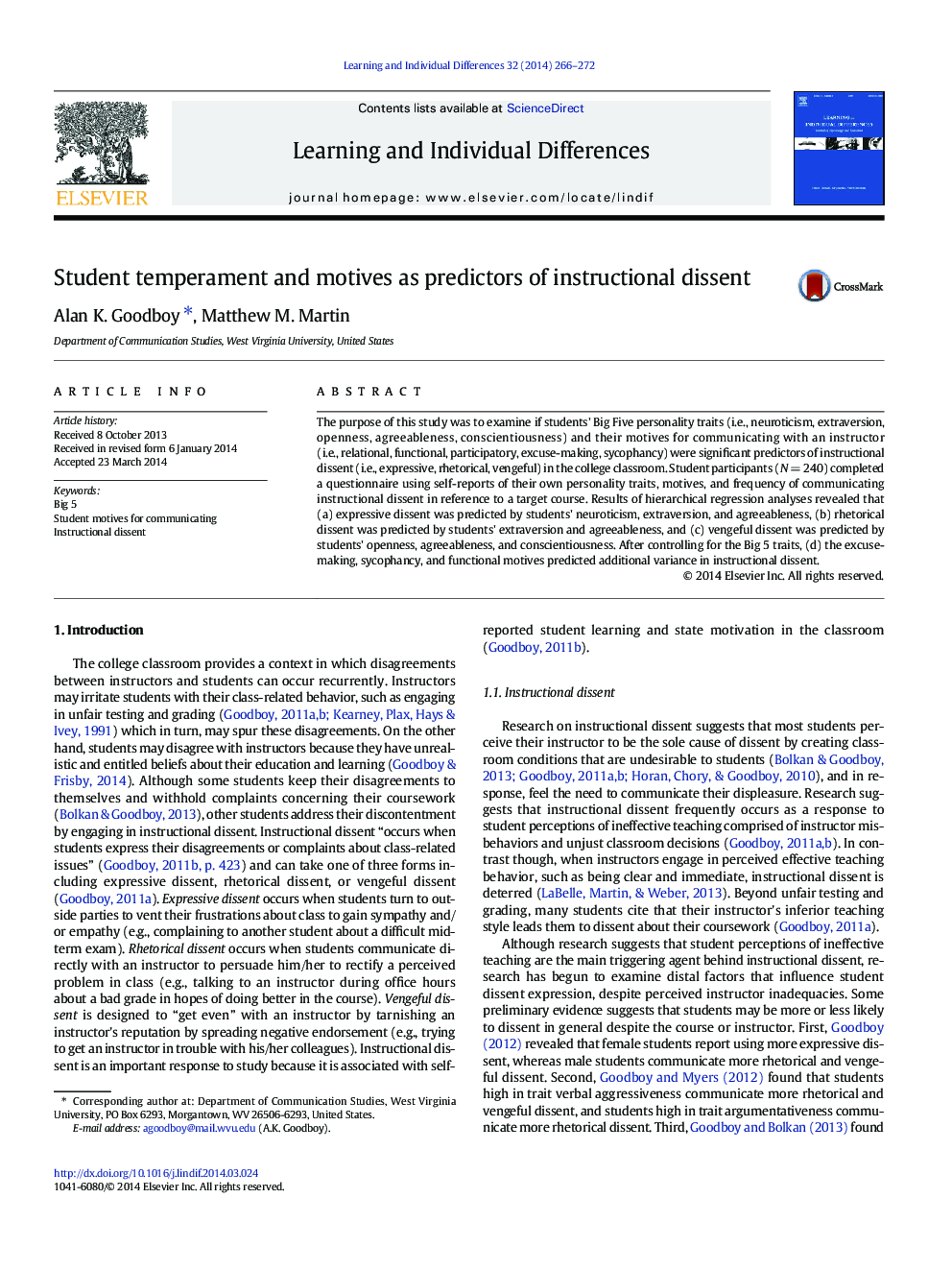| Article ID | Journal | Published Year | Pages | File Type |
|---|---|---|---|---|
| 6845172 | Learning and Individual Differences | 2014 | 7 Pages |
Abstract
The purpose of this study was to examine if students' Big Five personality traits (i.e., neuroticism, extraversion, openness, agreeableness, conscientiousness) and their motives for communicating with an instructor (i.e., relational, functional, participatory, excuse-making, sycophancy) were significant predictors of instructional dissent (i.e., expressive, rhetorical, vengeful) in the college classroom. Student participants (NÂ =Â 240) completed a questionnaire using self-reports of their own personality traits, motives, and frequency of communicating instructional dissent in reference to a target course. Results of hierarchical regression analyses revealed that (a) expressive dissent was predicted by students' neuroticism, extraversion, and agreeableness, (b) rhetorical dissent was predicted by students' extraversion and agreeableness, and (c) vengeful dissent was predicted by students' openness, agreeableness, and conscientiousness. After controlling for the Big 5 traits, (d) the excuse-making, sycophancy, and functional motives predicted additional variance in instructional dissent.
Keywords
Related Topics
Social Sciences and Humanities
Psychology
Developmental and Educational Psychology
Authors
Alan K. Goodboy, Matthew M. Martin,
